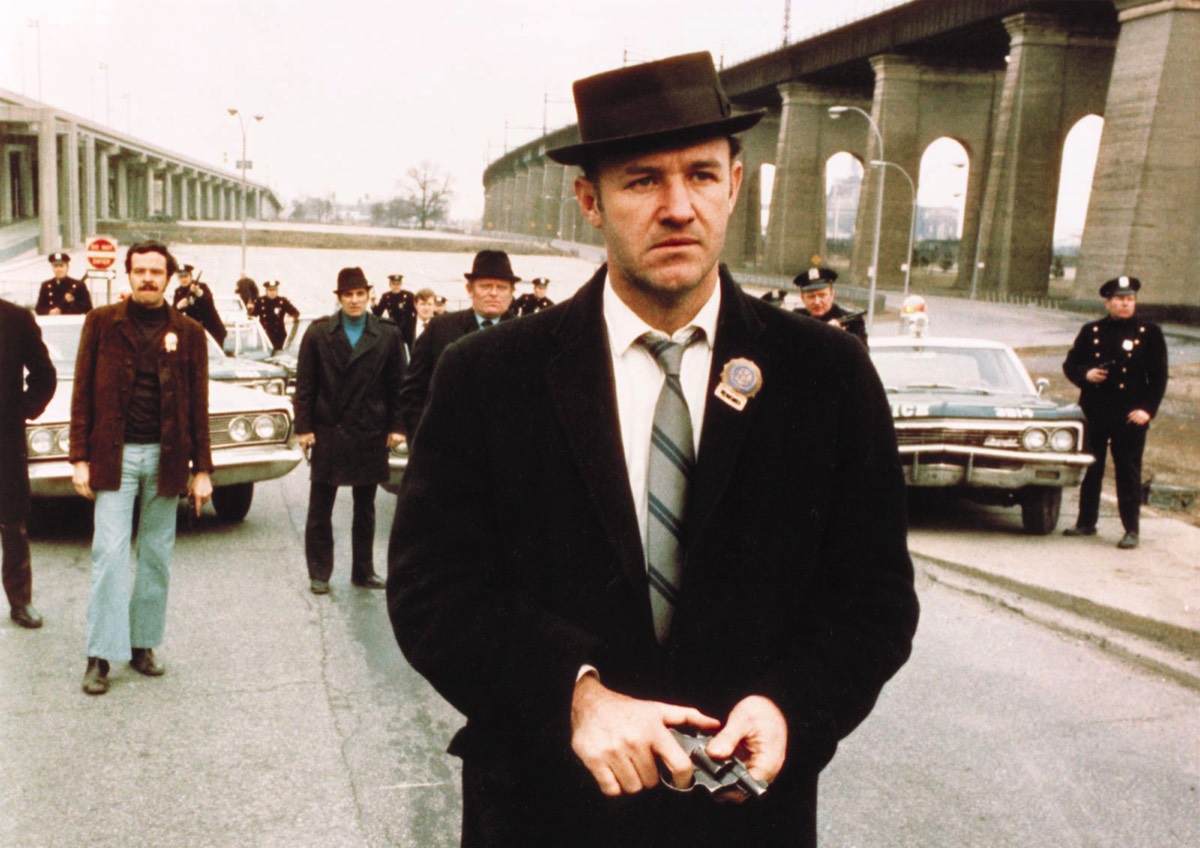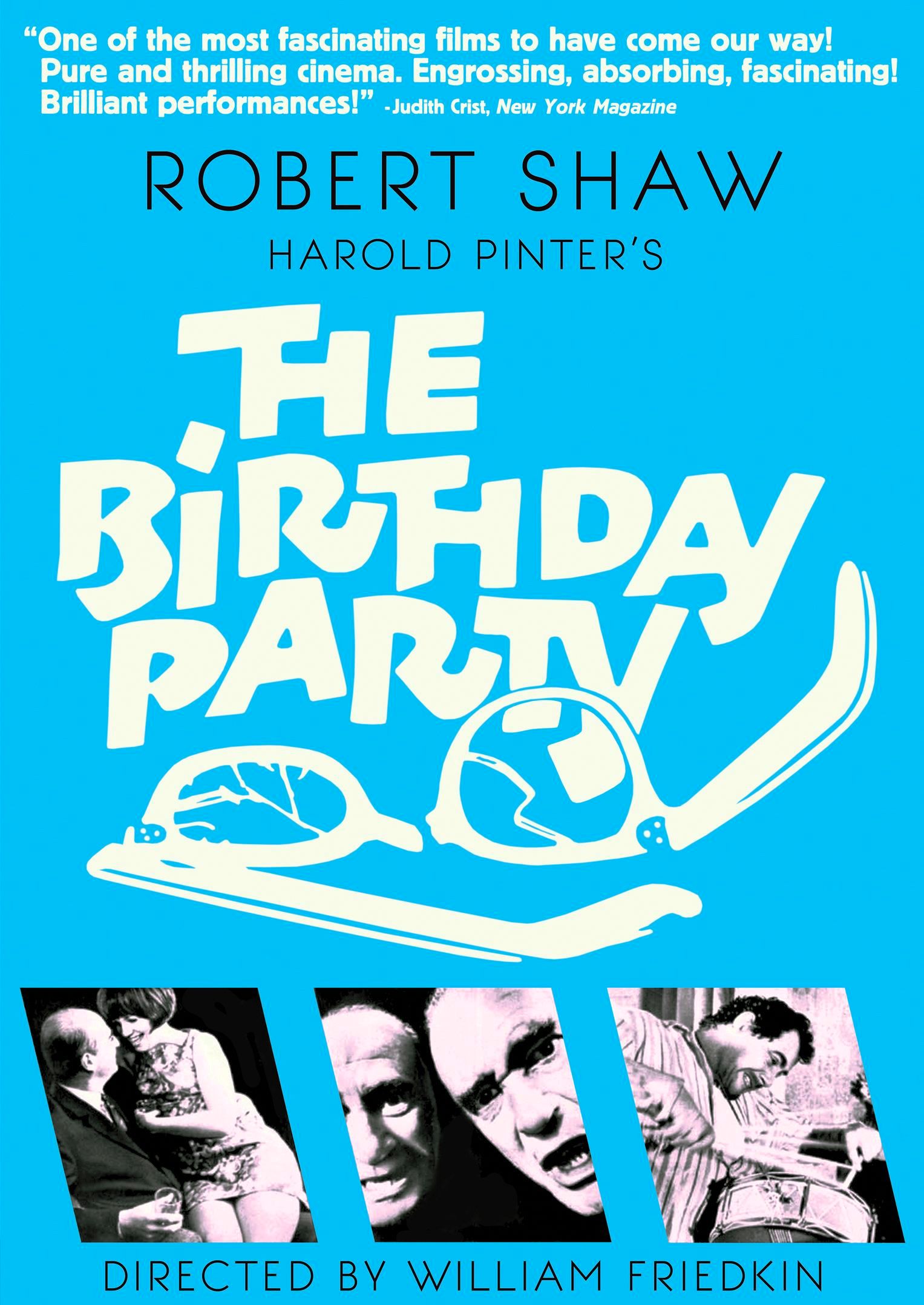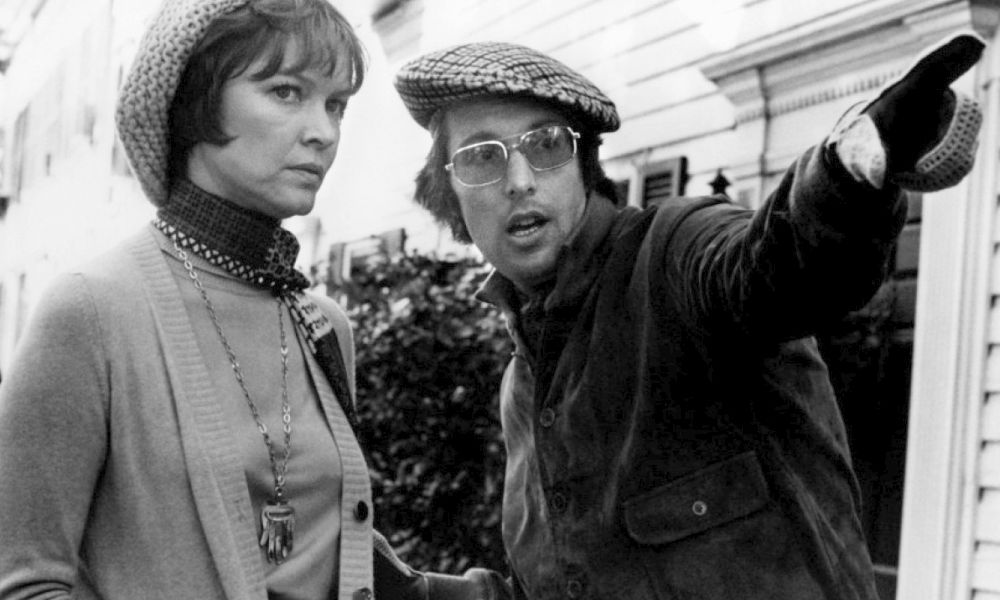"William Friedkin was a central figure in the "New Hollywood" movement of the 1970s. Subsequent work has been patchy, both critically and commercially, but has proved provocative and, sometimes, distinctive." - Neil Jackson (501 Movie Directors, 2007)
William Friedkin
Director / Screenwriter / Producer
(1935-2023) Born August 29, Chicago, Illinois, USA
Top 250 Directors
(1935-2023) Born August 29, Chicago, Illinois, USA
Top 250 Directors
Key Production Country: USA
Key Genres: Thriller, Drama, Police Detective Film, Crime Thriller, Action Thriller, Crime
Key Collaborators: Darrin Navarro (Editor), Bud Smith (Editor), Roy Scheider (Leading Actor), Michael Biehn (Leading Actor), Tracy Letts (Screenwriter), Owen Roizman (Cinematographer), Michael Grady (Cinematographer), Caleb Deschanel (Cinematographer), Jerry Greenberg (Editor), Augie Hess (Editor), Brian Tyler (Composer), Franco-Giacomo Carbone (Production Designer)
Key Genres: Thriller, Drama, Police Detective Film, Crime Thriller, Action Thriller, Crime
Key Collaborators: Darrin Navarro (Editor), Bud Smith (Editor), Roy Scheider (Leading Actor), Michael Biehn (Leading Actor), Tracy Letts (Screenwriter), Owen Roizman (Cinematographer), Michael Grady (Cinematographer), Caleb Deschanel (Cinematographer), Jerry Greenberg (Editor), Augie Hess (Editor), Brian Tyler (Composer), Franco-Giacomo Carbone (Production Designer)
"In many of the films of William Friedkin, there is an element of sensationalism that suggests not only the commercial sense of an opportunist but also the absence of artistic vision. Compared to the other 'whizz kids' who came to prominence in American cinema during the '70s, he seems singularly without personality... Friedkins' dependence on violent physical action points up his poor sense of narrative and character. Any pretensions he has to seriousness are undermined by his films' repeated inability to transcend two-dimensional caricature and cliched situations." - Geoff Andrew (The Film Handbook, 1989)
"A brilliant technician, Friedkin struck pay-dirt with two blockbusters in three years, The French Connection (1971), with its famous (and illegal - Friedkin had not asked permission to film where and what he did) car chase, and The Exorcist (1973), a green-vomit-stained masterpiece of inspired exploitation which spawned a host of inferior copies, and which totally changed the way Hollywood viewed word-of-mouth advertising." - Mario Reading (The Movie Companion, 2006)

The French Connection (1971)
"Friedkin cut his directorial teeth in television and documentary. Alongside other 'new' Hollywood directors such as Coppola and De Palma, Friedkin fought against many aspects of the Hollywood system." - The Movie Book, 1999
"Entering the cinema in 1967, he made four modest films, among them a pleasant piece of theatrical nostalgia in The Night They Raided Minsky's, followed by two enormous box-office successes, The French Connection and The Exorcist. These two made Friedkin a desirable acquisition, but they are flashy, vulgar films, contemptuous in their exploitation of the easy shock." - The Illustrated Who's Who of the Cinema, 1983
"The success, both critical and commercial, of William Friedkin’s films has been uneven since the release of his first feature in 1967. Although his works span several different genres, they share some common thematic and technical characteristics. His heroes are nontraditional and find themselves in unconventional situations or environments foreign to the average viewer. Technically, Friedkin often seems more concerned with creating mood and establishing atmosphere than with the progress of the narrative or character development. His great attention to detail and characteristic use of long establishing shot sequences do create mood and atmosphere but often do not contribute to the film as a whole." - Mari Saeli (International Dictionary of Films and Filmmakers, 2000)
"Out of television and into movies, William Friedkin has impressed mainly with his energy for hustling up projects, several that would have been better left to rest, but two of which—The French Connection and The Exorcist—put him, temporarily at least, on top of the creaking, swaying pile. Friedkin looks like a jumped-up TV director, glib enough to make a credo out of price-cutting and convinced that the zoom and the insistent violence of unexpected images need only a raw feeling for sensation to outflank traditional requirements of construction and meaning." - David Thomson (The New Biographical Dictionary of Film, 2010)
"In the 1980s, Friedkin floundered: it almost seemed that the man had no shame, making just about anything on offer and ending the decade with a (bad) horror film about a man-eating tree." - David Quinlan (Quinlan's Illustrated Guide to Film Directors, 1999)
"If you’re going to make a film or an album of music or a painting, you cannot afford to stop and think what other people will think of it. You’ve got to take into consideration what your editor thinks, if, say, you’re a writer. But I don’t have anyone to answer to. I make a film because I want to. Sometimes they’re successful, sometimes they’re not, but the way I think about my films is always very personal." - William Friedkin (The Guardian, 2018)
Selected Filmography
{{row.titlelong}}
GF Greatest Films ranking (★ Top 1000 ● Top 2500)
21C 21st Century ranking (☆ Top 1000)
T TSPDT N 1,000 Noir Films S Martin Scorsese
21C 21st Century ranking (☆ Top 1000)
T TSPDT N 1,000 Noir Films S Martin Scorsese
William Friedkin / Favourite Films
8½ (1963) Federico Fellini, All About Eve (1950) Joseph L. Mankiewicz, Blowup (1966) Michelangelo Antonioni, Citizen Kane (1941) Orson Welles, Jesus of Montreal (1989) Denys Arcand, Last Tango in Paris (1972) Bernardo Bertolucci, Paths of Glory (1957) Stanley Kubrick, Singin' in the Rain (1952) Stanley Donen & Gene Kelly, The Treasure of the Sierra Madre (1948) John Huston, 2001: A Space Odyssey (1968) Stanley Kubrick.
Source: Sight & Sound (1992)
A longer, more recent list of William Friedkin's favourite films can be found at La Cinetek (2016).
8½ (1963) Federico Fellini, All About Eve (1950) Joseph L. Mankiewicz, Blowup (1966) Michelangelo Antonioni, Citizen Kane (1941) Orson Welles, Jesus of Montreal (1989) Denys Arcand, Last Tango in Paris (1972) Bernardo Bertolucci, Paths of Glory (1957) Stanley Kubrick, Singin' in the Rain (1952) Stanley Donen & Gene Kelly, The Treasure of the Sierra Madre (1948) John Huston, 2001: A Space Odyssey (1968) Stanley Kubrick.
Source: Sight & Sound (1992)
A longer, more recent list of William Friedkin's favourite films can be found at La Cinetek (2016).
William Friedkin / Fan Club
Benny Safdie, Mark Kermode, John Woo, Edgar Wright, Bruce LaBruce, M. Night Shyamalan, Alex Proyas, Patrick Fahy, Aleksandr Zeldovich, Abel Ferrara, Rüdiger Suchsland, Tom Mes.
Benny Safdie, Mark Kermode, John Woo, Edgar Wright, Bruce LaBruce, M. Night Shyamalan, Alex Proyas, Patrick Fahy, Aleksandr Zeldovich, Abel Ferrara, Rüdiger Suchsland, Tom Mes.
"Fan Club"
These film critics/filmmakers have, on multiple occasions, selected this director’s work within film ballots/lists that they have submitted.
These film critics/filmmakers have, on multiple occasions, selected this director’s work within film ballots/lists that they have submitted.


